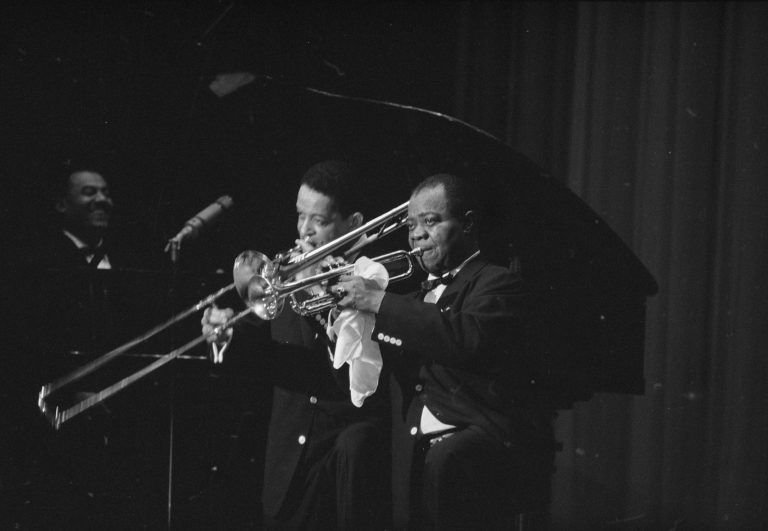There is no jazz musician as closely intertwined with the history of jazz music as Louis Armstrong. Louis Daniel Armstrong grew up in poor conditions …
Fred Astaire: Master of the dance
It all started in Omaha, Nebraska: Fred Astaire, whose real name was Frederick Austerlitz, was born there in 1899. His mother was the daughter of …
The music of the James Bond movies
It was actually an accident: English composer Monty Norman was entrusted with composing the score for the first Bond film, Dr. No, in 1962. John …
Dalida: The exotic chanteuse (3.)
Iolanda wanted to present her new musical style at the Olympia: But the owner of the Olympia, Bruno Coquatrix, did not believe that she would attract the audience with her new style. Dalida herself was also doubtful: she was not sure if her audience, used to chansons like Bambino, would accept melancholic chansons.
Dalida: The exotic chanteuse (2.)
The success of Bambino was enormous: she received a gold record for 300,000 sold records of Bambino. But at this point Dalida’s journey of success was far from over.
Lucien Morisse, her lover and also her manager, landed a second hit with her: Gondolier.
The song was written in French and Italian – which improved the chances for success. The plan worked: Gondolier became Dalida’s second big hit – this time the song also enjoyed great success in Italy.
Mirella Freni: The Magic of a Voice
She was considered Herbert von Karajan’s favorite singer, was a friend of Maria Callas, and grew up with Luciano Pavarotti: Mirella Freni.
Fritz Wunderlich: The Century Tenor (4.)
It was in June 1963 that Fritz Wunderlich caused a small scandal in his hometown Kusel: In a television broadcast, Wunderlich referred to his home town of Kusel as “a little nest in the Palatinate.” The people of Kusel took this as an insult – it took less than 24 hours for Fritz Wunderlich to learn of the uproar…
Fritz Wunderlich: The Century Tenor (3.)
At the end of January 1960, Fritz Wunderlich met Herbert von Karajan for the first time: in a performance of Mozart’s Requiem with the Berlin Philharmonic Orchestra, Wunderlich earned the praise of the Berlin press:
Fritz Wunderlich: The Century Tenor (1.)
On the morning of September 26, 1930, the following sign decorated the door of the saloon Emrich’s Braustübl inn in the Palatine town of Kusel: “Fritzchen has arrived today. Saloon closed!”. Just who was it who had “arrived”? Perhaps more importantly, who were the parents of „Fritzchen“, the new-born baby?
The chanson of Marlene Dietrich
Babelsberg, 1929. Marlene Dietrich chants through the studios of the Babelsberg Film Studios the chanson Falling In Love Again. Marlene could not have known then …





